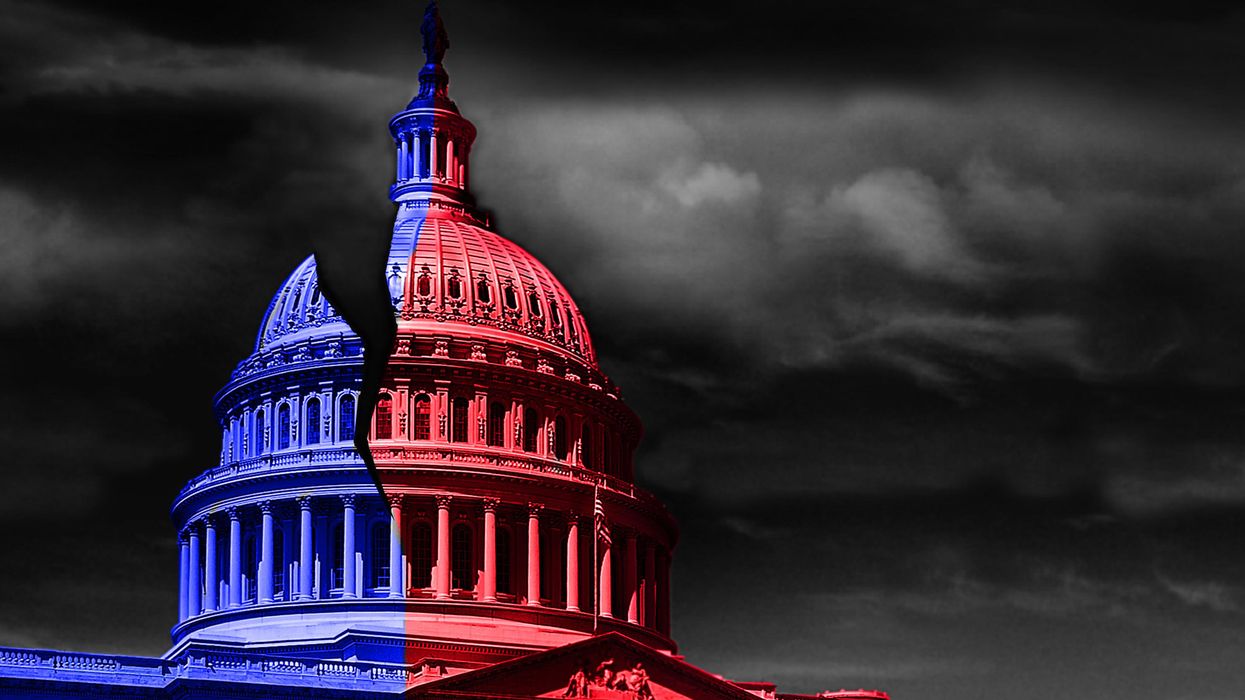This op-ed is part of a series laying out a cross-partisan vision to restore congressional authority as outlined in Article I of the Constitution and protect our system of checks and balances.
Our Founders deliberately placed the power to “regulate commerce with foreign nations” with Congress for a reason. The legislative branch, closest to the people, was always intended to decide the terms of our economic relationships with the world because trade policy has always been about more than tariffs – it shapes our economy, our diplomacy, and our national security.
Yet Congress has steadily ceded its constitutional role in trade policy to the executive branch over the course of many decades. What was once the responsibility of the People’s Branch has increasingly become the domain of presidents who wield tariffs and trade agreements as instruments of foreign and domestic policy. This imbalance was not created overnight. But the result is a dangerous concentration of power that runs contrary to our constitutional order.
Historically, Congress played the central role in setting tariffs and trade policy. That began to shift in the 20th century when lawmakers began delegating increased negotiating authority to the executive branch. The Reciprocal Trade Agreements Act of 1934 and the Trade Expansion Act of 1962. The Trade Act of 1974 established the Trade Promotion Authority — a statute that allowed for the President to work in tandem with Congress to approve trade agreements. Nonetheless, each of the aforementioned laws gave presidents greater leeway to cut deals or impose restrictions in the name of national security or economic stability. While these moves were intended to provide flexibility, they also blurred constitutional lines.
In recent years, presidents from both parties have increasingly exploited these powers in unilateral and unpredictable ways. Trade wars have been launched without debate, presidents have imposed sweeping tariffs against allies and adversaries alike, and major international agreements have been entered into or abandoned without legislative approval. This is not how our system of checks and balances was meant to function.
The danger is twofold. First, unchecked executive power on trade undermines democratic accountability. When a president can, with the stroke of a pen, raise costs for American farmers, manufacturers, and families, the people’s representatives are sidelined. Second, it erodes the very principle of separated powers that our republic depends on.
Congress has a constitutional duty and responsibility to reassert itself—and the American people agree. In a recent poll released by Issue One, 56 percent of American voters surveyed nationwide do not believe that the president should be able to impose tariffs unilaterally without congressional approval.
Restoring balance does not mean returning to the tariff protectionist era of the 19th century. It does mean setting clear parameters around when and how the executive may act, requiring congressional approval for significant tariff actions, and reclaiming oversight of trade agreements that have significant repercussions for our economy.
Several bipartisan proposals in recent years have sought to rein in presidential tariff authority and restore Congress's proper role. The Trade Review Act of 2025, introduced earlier this year by Senators Maria Cantwell (D-WA) and Chuck Grassley (R-IA), would reestablish limits on the president’s ability to impose unilateral tariffs without the approval of Congress. It would require the president to notify Congress of any new tariffs within 48 hours, and Congress would have to pass a joint resolution approving the new tariffs within 60 days; otherwise, all new tariffs would expire. The bill would also give Congress the ability to end tariffs at any time by passing a resolution of disapproval. This proposal should be taken up with urgency.
As James Madison warned, the accumulation of power in any single branch is “the very definition of tyranny.” Allowing the executive to dominate trade policy erodes the balance Madison and his colleagues carefully constructed. Reasserting Congress’s authority would not only protect our economy from the whims of individual leaders, it would reaffirm the basic principle that in a republic, no single branch governs alone.
Congress must reclaim its rightful place in trade policy – not as a matter of partisanship, but as a matter of constitutional principle. Our prosperity, our democratic accountability, and our checks and balances depend on it.
Charles Boustany (R-LA) is a former U.S. representative serving Louisiana’s 3rd and 7th congressional districts. He is a member of Issue One’s ReFormers Caucus, the largest bipartisan coalition of its kind ever assembled to advocate for sweeping reforms to fix our broken political system.




















Trump & Hegseth gave Mark Kelly a huge 2028 gift